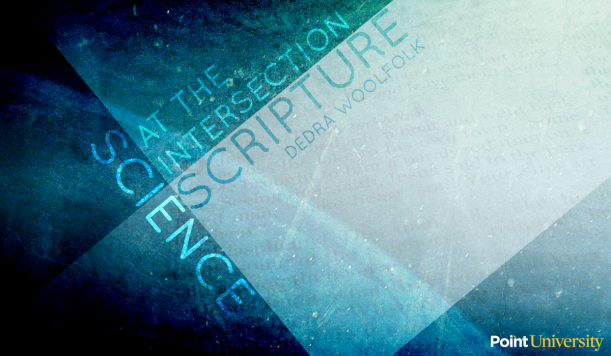
I believe that the Bible is the inerrant and inspired Word of God. From the book of Genesis to the book of Revelation, God’s word tells the ultimate love story. It documents His creation of the living world. It tells of the deception and sin that led to the fall of man, and it reveals the restorative plan of God through the redeeming power of the cross of Jesus Christ.
With this as the foundation of my worldview, you can imagine the challenge that I face as a biology professor.
Biology is the study of life, and a major theory in biology is biological evolution. Biological evolution states that living organisms change over time. This appears to be simple and true enough on the surface, but there is another meaning that underlies this theory. According to evolutionary thought, all living organisms came into existence as a result of chance mechanisms fueled by an undirected process of mutation, natural selection and lateral transfer of genetic information over millions of years. The mainstream consensus among the scientific community is that the changes that can occur within an organism can be forced to explain the mechanism by which all living things arose from a common ancestor.
“In the beginning, God created the heavens and the earth.” Genesis 1:1 (NIV)
In contrast to biological evolution, the first chapter of the book of Genesis informs us that over a six-day period, God created the earth and each kind of living thing that dwells therein, including man made in His own image. The Bible proclaims that God established each living thing to reproduce after its kind – not gradually change from one kind of organism to another. Although not written as a peer-reviewed journal article of research, the Genesis account of the beginning of life is paramount to our understanding of origins, natural selection and the apparent limits to changes that can occur within living organisms.
So what should the Christian make of this obvious conflict between what Scripture teaches and evolutionary thought?
“Everything was created through him; nothing—not one thing — came into being without him.” John 1:3 (The Message)
So many people believe that the Bible and science are mutually exclusive of each other. However, I do not think that Christianity is in opposition to the process of science itself. The conflict is rooted in the standard evolutionary worldview through which the interpretation of scientific findings are made.
God established the natural laws upon which the world operates, and I believe He made us inquisitive beings with the desire to ask questions, investigate and seek to understand the living world that He created. I recently read an article that noted that over the last 100 years, scientific breakthroughs in biology have ensued independent of evolutionary concepts. The author went on to say that it is our knowledge of how these organisms actually operate that is essential to doctors, veterinarians, farmers and the like – not speculations about how they may have arisen millions of years ago. Centuries of scientific research in disciplines such as medicine, agriculture and biotechnology have contributed to knowledge and innovation that we benefit from each day. And when we recognize that God created all living organisms for a purpose and for His glory, our work – even in the science laboratory – can glorify Him as it reveals His majesty and His handiwork.
Despite a growing number of reputable scientists (who do not claim to be bible-believing Christians) who admit that the basis of the evolution theory is founded on unprovable assumptions, “watered-down” facts, and out-dated concepts, evolutionary claims are heavily infiltrated in the fabric of our society.
I thank God for the opportunity to uncover the weaknesses and flaws of evolutionary thought and to let students know that they can study, learn and love biology without being a proponent of the theory of biological evolution.
 Dedra Woolfolk, Ph.D.
Dedra Woolfolk, Ph.D.
Professor of Science, Department Chair



